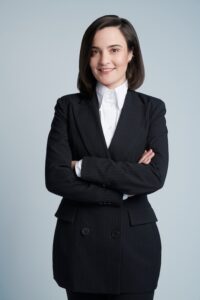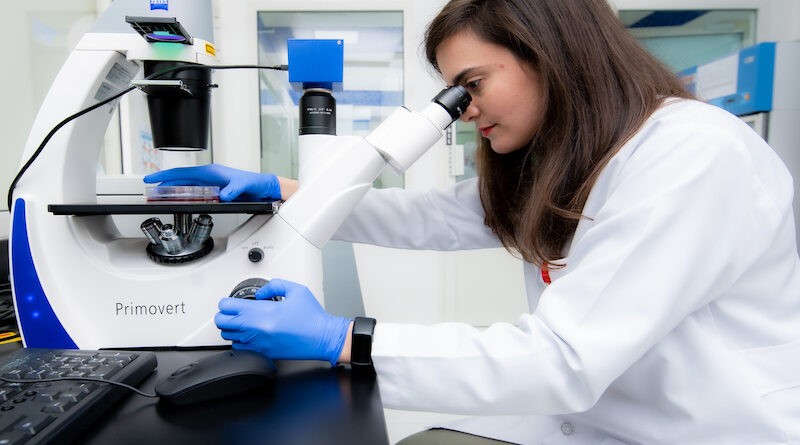Tell us about yourself and what inspired you to pursue your field of expertise?
Well science was always a big part of my life. It gave me space to be myself, to be this curious, stubborn person who wants to find answers and this passionate person with big dreams. That led to me completing my Master in Cancer Biology in my home country at the Lebanese University. From there, I won a Dunia Beam Erasmus Mundus scholarship to do my PhD in Genetics, Molecular and Cellular Biology in Italy. My studies were on gastrointestinal cancer, and after joining the research team at Thumbay Research Institute for Precision Medicine, TRIPM, at Gulf Medical University, they became focused on pancreatic cancer. I have always believed that becoming a scientist would give me the opportunity to potentially make a real difference in the lives of cancer patients. My motivation became even stronger after getting to know how far behind science is on offering effective treatments against pancreatic cancer in specific compared to other tumor types, and how understudied it is in the MENA region. This further pushed my focus towards researching this disease.
Can you take us through your research and what challenge you hope to achieve?
My research is focused on pancreatic cancer. This disease is among the deadliest types of solid tumors and while the five-year overall survival remains constant at a mere 11 percent, the incidence and mortality rate continue to rise. New treatment strategies are desperately needed to improve patient outcomes. Through a collaborative work, we have shown that hypoxia, a condition of low oxygen, in the tumor microenvironment is associated with worse patient survival and an immunosuppressed state. Hypoxia switches on tumor adaptation, enhancing tumor growth and resistance to therapy. The aim of my research is to reverse this condition in the tumor. Furthermore, given that more than 90 percent of pancreatic tumors arise due to mutations in a cancer-associated gene, KRAS, we will also be inhibiting this mutant protein to prevent tumor cells from multiplying. This would be the first time such a combination is evaluated in pancreatic cancer and the hope is to achieve elimination of tumor growth.
How has it been navigating such a male-dominated field, what are the challenges you faced?
I think I need to underline that while the field might be male dominated, there are a lot of women who managed to break the seal and reach a position from which they can support and help other women pursuing a similar path. At least that has been my experience. Even when it came to men in higher positions, I was lucky to have been constantly guided by professors who judged me based on my work and gave acknowledgement where it is due. To this day, I cannot say I have suffered any such injustice on account of being a woman. If anything, I think there is a growing female presence and an empowering state of mind that is blooming in STEM, and I hope that more women realize the significance of this evolution and give the field a chance.
If you could give the next generation of female scientists one piece of advice, what would it be?
My one piece of advice to the next generation of female scientists would be to not give up on your goals. If your aspiration is to be in STEM, then be assured that through dedication and hard work you can achieve a successful career. Science is a community that thrives on teamwork and shared discovery so you will find the needed support and help along the way. Do not be discouraged by how things are, by what the social norm is understood to be, you too can choose to be part of the change.
How can we encourage more women and girls in STEM fields?
Hiring more women in STEM and celebrating their achievements is imperative for inspiring the next generation. Such role models are proof that you can make it and that it is a passion worth pursuing. More initiatives like the L’Oréal-UNESCO for women in science are needed to recognize seasoned women in STEM and share their achievements with the world, as this is bound to entice and excite young women in seeking similar fields. We further need to make it clear that a woman does not have to choose between having a family and a successful career, there are always ways to balance both. Finally, we need to give more opportunities for highschoolers to experience the field, since at that critical time in their lives, they are already planning their future. For example, at Gulf Medical University, we have an initiative called the Future Scientists of the UAE where high school students get the chance to engage with researchers and witness science in action. They get to learn about their projects and the techniques used, seeing firsthand the potential impact science can have, all in the hope of inspiring them to seek a similar career.











